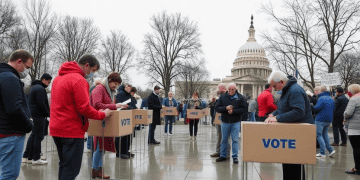The Lumbardhi cinema in Prizren, Kosovo, has long been a cultural hub for the local community, screening international films and hosting an annual documentary festival. However, the cinema’s plans for renovation have hit a roadblock after the European Union canceled a 1.5 million euro grant intended to fund vital infrastructure upgrades, citing EU sanctions imposed on Kosovo. These sanctions, introduced in 2023, were a response to Prime Minister Albin Kurti’s policies regarding ethnic tensions in northern Kosovo, where the majority of the population is ethnic Serb.
The grant cancellation is part of broader EU sanctions that have stalled multiple projects in Kosovo. According to sources, over 150 million euros worth of projects have been delayed, including a 70-million-euro sewage treatment plant and concert hall renovations. While the Kosovo government downplays the sanctions’ impact, the cancellation of these projects illustrates the strain felt by one of Europe’s poorest countries as it approaches its February 9 elections.
Kosovo, a majority ethnic Albanian country with around 100,000 ethnic Serbs, has faced increasing challenges in balancing relations with the EU and Serbia. Kosovo declared independence from Serbia in 2008, a move supported by the U.S. but not recognized by Serbia, which continues to provide financial support to Kosovo’s ethnic Serbs. Kosovo’s government has been criticized for policies that some feel exacerbate ethnic divisions, particularly in the north.
As Kosovo approaches elections, Prime Minister Kurti’s handling of EU relations has been a topic of concern. Despite the sanctions, Kurti’s government has pressed ahead with policies that limit Serbian influence in northern Kosovo, including moves to install ethnic Albanian mayors in Serb-majority municipalities and implement strict vehicle registration rules. These policies have led to violence in the region and worsened ethnic tensions.
Kurti’s Vetevendosje party has seen a decline in popularity, with private polls indicating that the party’s support has dropped from 50.2% in the 2021 elections to around 40%. Some voters worry that Kosovo’s international isolation could harm the country’s long-term stability, even though Kurti has pushed for greater control over the north.
EU sanctions are seen by some as counterproductive, harming ordinary citizens while failing to change Kurti’s stance. A senior diplomat indicated that some EU countries, particularly those with closer ties to Serbia, are reluctant to ease the sanctions. However, the EU maintains that the sanctions are “temporary and reversible” and will be lifted if Kosovo de-escalates tensions in the north.
The situation is further complicated by the stalled projects that impact both ethnic Albanians and Serbs. The delayed sewage treatment plant project, for example, has been a significant point of frustration, as the city of Pristina continues to struggle with pollution and inadequate waste management. Residents in affected areas face severe health and environmental issues, with raw sewage contaminating rivers and canals.
As Kosovo prepares for its elections, these issues are expected to influence voter sentiment, particularly among those who feel that international support has waned under Kurti’s leadership. The coming months will be critical in determining Kosovo’s political future, its relationship with Serbia, and its path toward greater integration with the EU.
Explore comprehensive supply chain news at The Supply Chain Report. Those interested in international trade can visit ADAMftd.com for free tools.
#KosovoSanctions #EUSanctionsImpact #KurtiGovernment #EthnicTensions #KosovoElections2025















